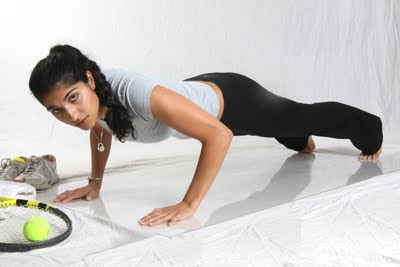
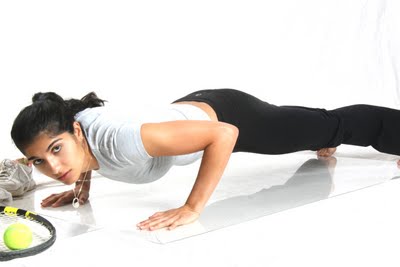

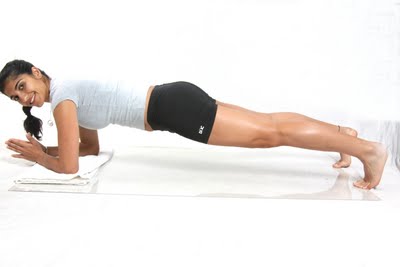

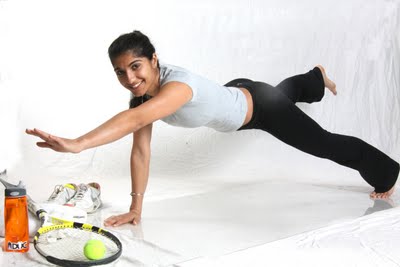
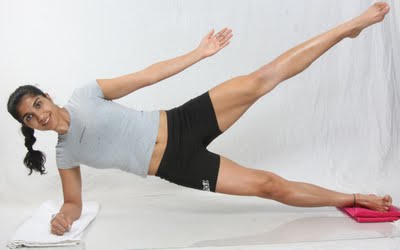
We all want to have a nice lean midsection with defined abs, right? While the looks of nice abs are great, the strength and functionality of the core is even more important. For tennis players and all athletes strengthening your core will:
1. Allow transferring the power from your legs and hips to your upper body and arms.
2. Give you the ability to hit your shots in better balance and as a result with more precision and power.
3. Reduce or eliminate injuries as all the joints (hips, knees, and shoulders) will load and work in more harmony.
Training your core doesn’t mean that you just strengthen your abs and get them looking pretty. The core means everything in the center of your body – your abdominals, your oblique’s and your low back. Strong supporting muscles around the spine will decrease the risk of low back pain or injury. You can strengthen each muscle group separately, but ultimately, the best and most functional way to strengthen your core is to do exercises that work everything as unity – just like in tennis, all the body parts move at the same time.
One of the best exercises to strengthen the core is…the Plank! Here are a some plank exercises from Suzanna McGee, former Miss Natural Olympia, about the importance of a strong core:
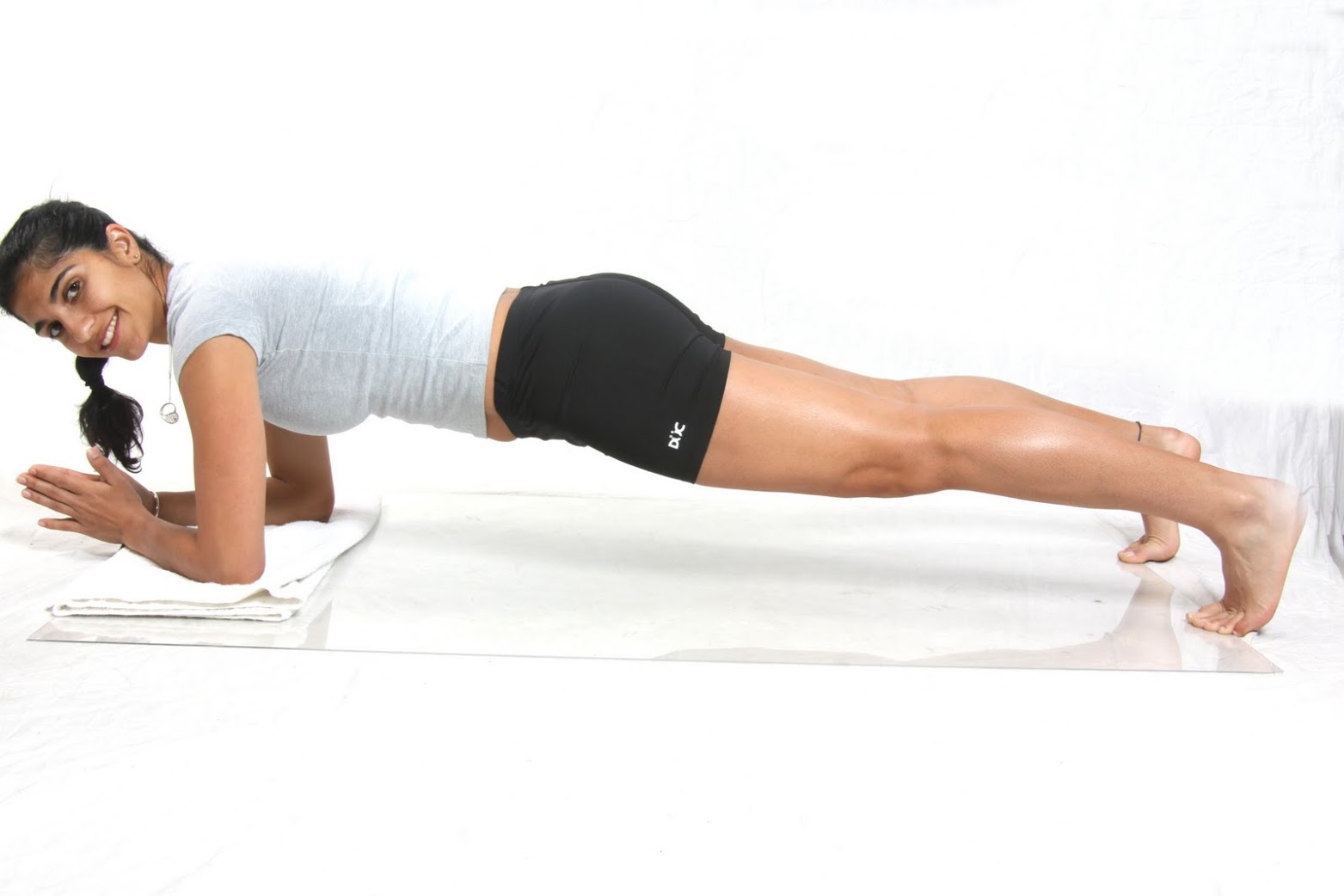
In addition to the strength, it also works your muscular endurance which is very important for tennis players – you need your core in each shot, for hours. Your athletic performance will improve dramatically if you have a strong core, and the risk of low back problems will decrease as well.
ing. Some can be done with added level of difficulty: you will be lifting your arm and leg at the same time. This version of Plank will also train your balance, endurance and flexibility.
1. The Plank with Arm and Leg Lifts
Get down on the floor on your hands and toes. Spread your fingers wide and pointing forward. Double check that both hands are even – you always want to look for the symmetry and balance of your body, because a lack of it is a main reason of the aches and injuries.
Keep your body straight like a plank. Don’t let your hips sink below the straight line linking your feet and shoulders. Have your booty slightly above the line rather than below. You have to keep your abs and low back contracted at all times!
Get your balance first, breathe in and lift your left arm and right leg at the same time and keep them straight and parallel with the ground.
If you lose your balance temporarily, hold the pose until you regain it. You have to do this exercise slowly, or you will find that you will be losing your balance more often. Hold the top position for 1-2 seconds, then slowly put the hand and foot on the ground again. Don’t drop them like a rock, do it with control. Then switch the side, and lift the right arm and left leg. Repeat 20 times.

2. Side Plank with the Leg Lift
Get down on the ground on your left side. Stack your feet on each other and support yourself on your left hand. Lift your hips up so they would be in one line with your feet and shoulders like a plank. Keep your body straight from the above view as well – don’t stick your booty out or push your chest forward.
When you feel like you have a good balance, raise your left arm vertically to the ground and in one line with your right arm. This will stretch your chest and add more difficulty. Hold the plank for up to 1 minute if you can.
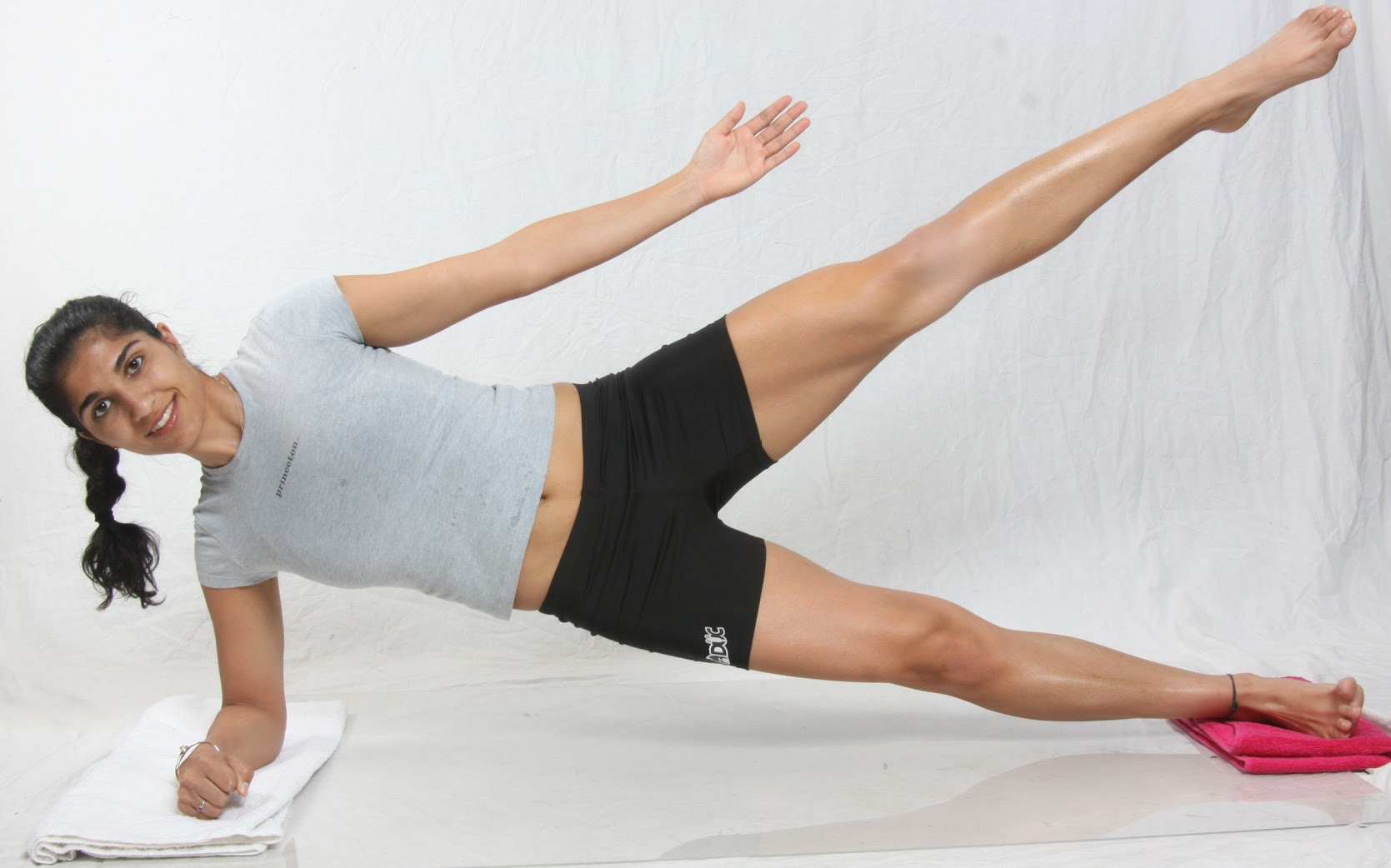
3. Push-ups with Knee to Elbow Touch
Get down on the ground on your hands and toes. Spread your fingers wide and pointing forward. Always see that your right side and left side is perfectly mirrored. The imbalances that tennis creates in our bodies tend to show in any posture that we take. So it is important to always ensure to have the stances and positions perfect.
Keep your body straight like a plank.
Push yourself up again, bend your left leg and bring the knee across toward your right elbow until they touch. Hold the position for 1 second and switch the legs. Then perform another push-up. Repeat 15-20 times.
When you do this exercise, you will find out that it is much harder than the“plain” push-up. You have to keep your entire core very tight and contracted, and move forward in your shoulders, while keeping the hands in the same spot. The more forward you lean in your shoulders, the easier it is to reach the elbow, but it is harder on all the stabilizing muscles of the shoulder. Which is really great – we want to train those!
Another variation
*There is no short cut in this exercise. While touching the knee to the elbow, if you don’t transfer the weight forward (which is easier on the shoulders) it’s hard to reach and touch. If you transfer your weight forward, it is easier to touch the knee and elbow, but it makes your shoulders tired faster.
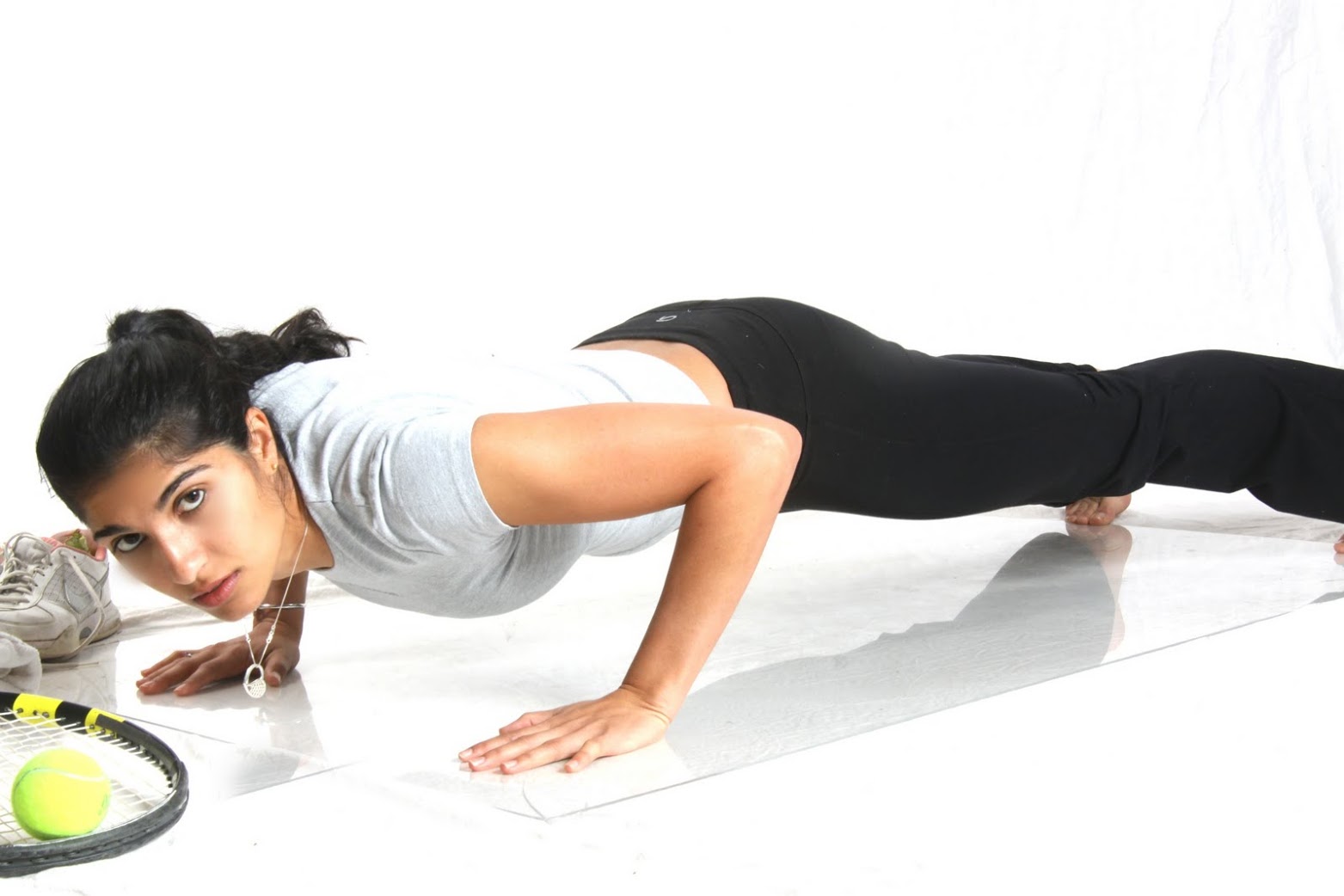
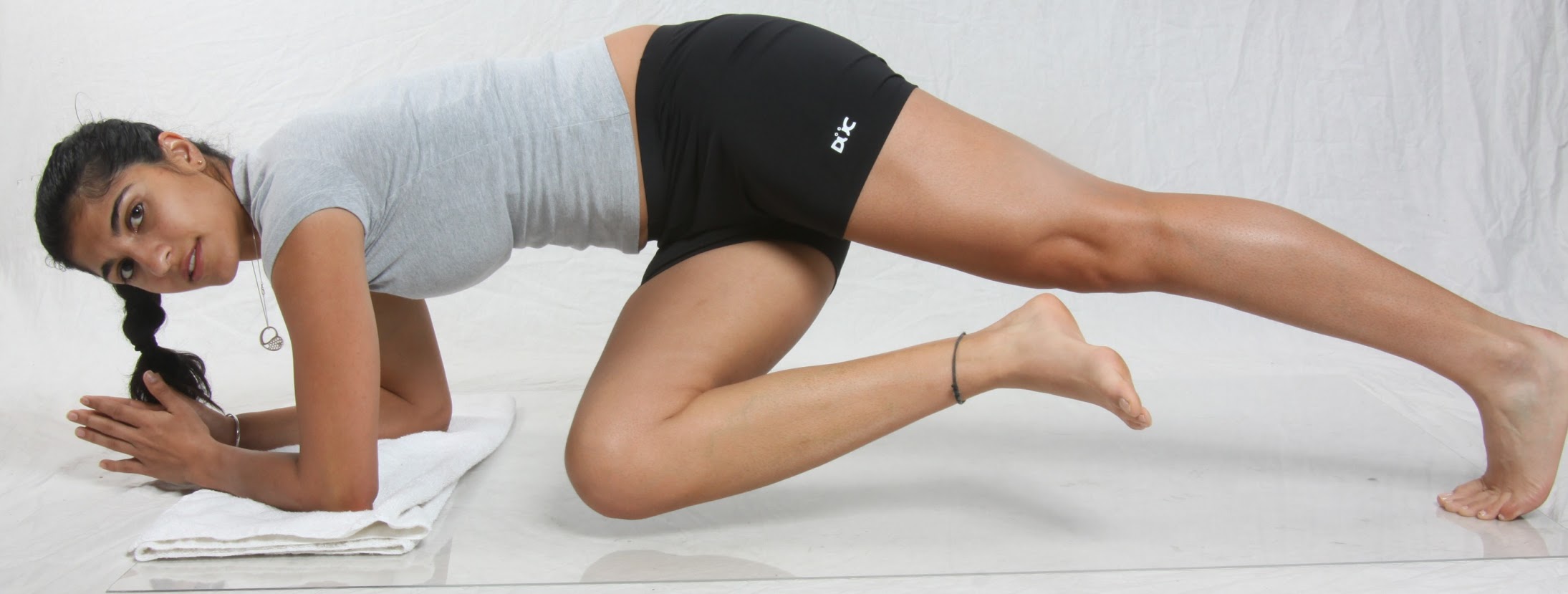
Don’t forget to subscribe to my blog here
